Shamed by Netizens, Children Take Their Mother Back from Nursing Home
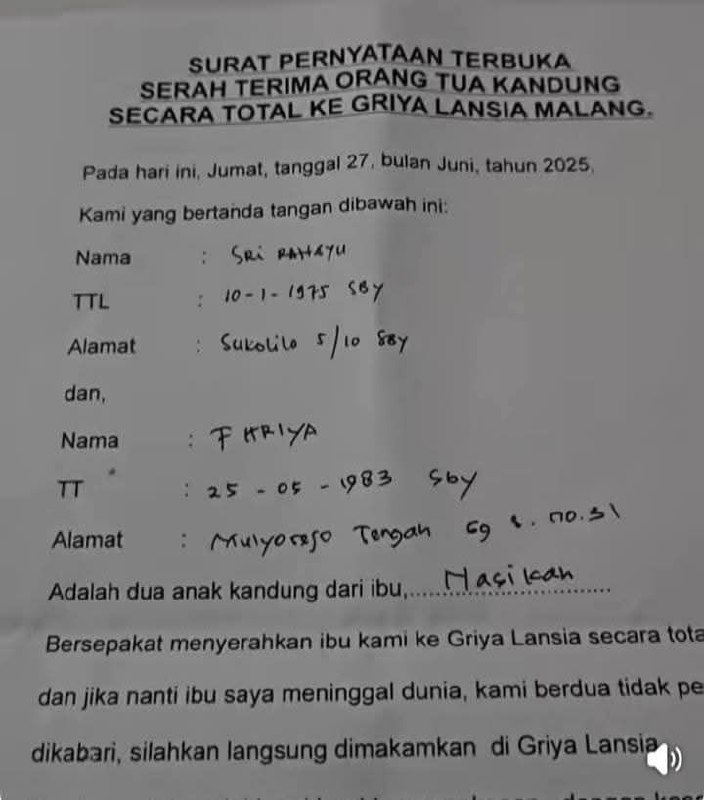
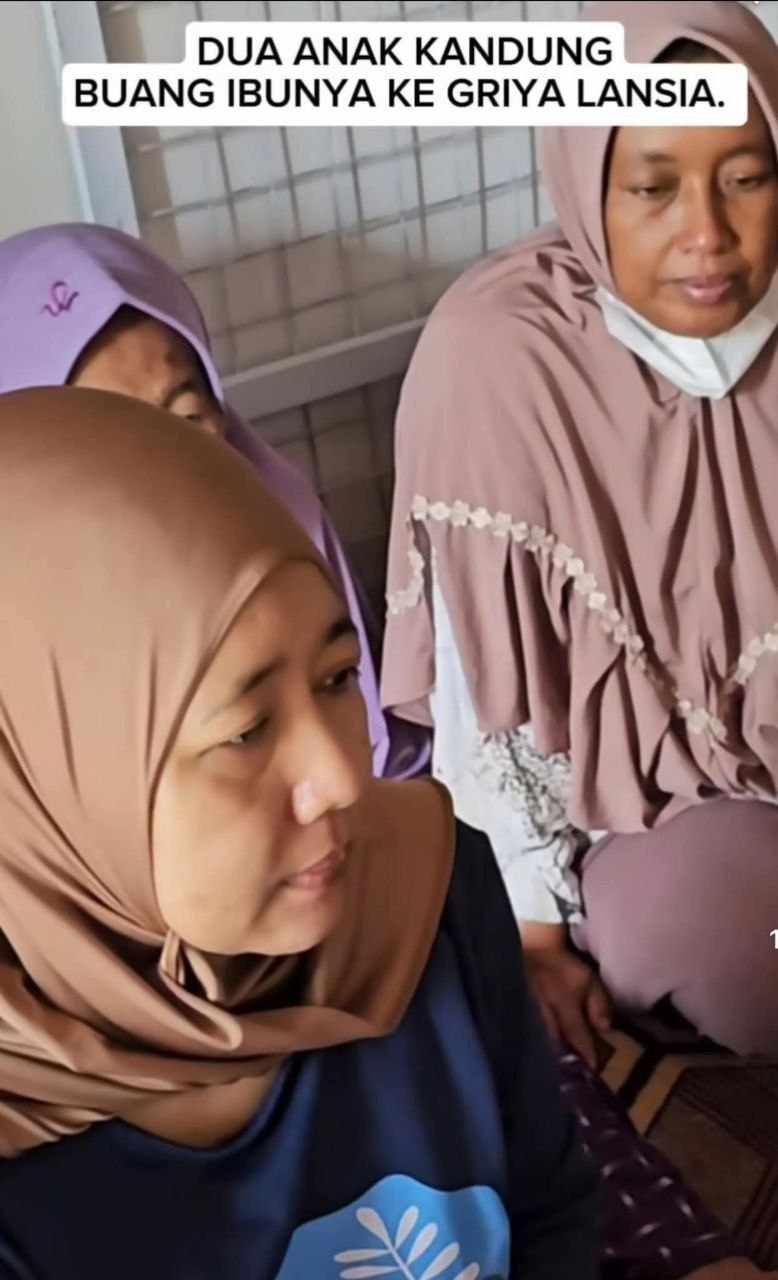
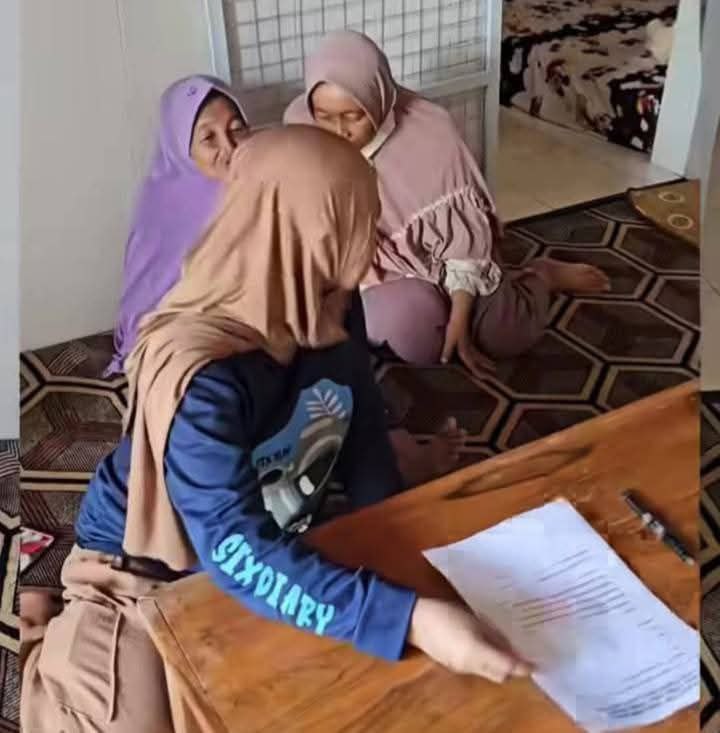
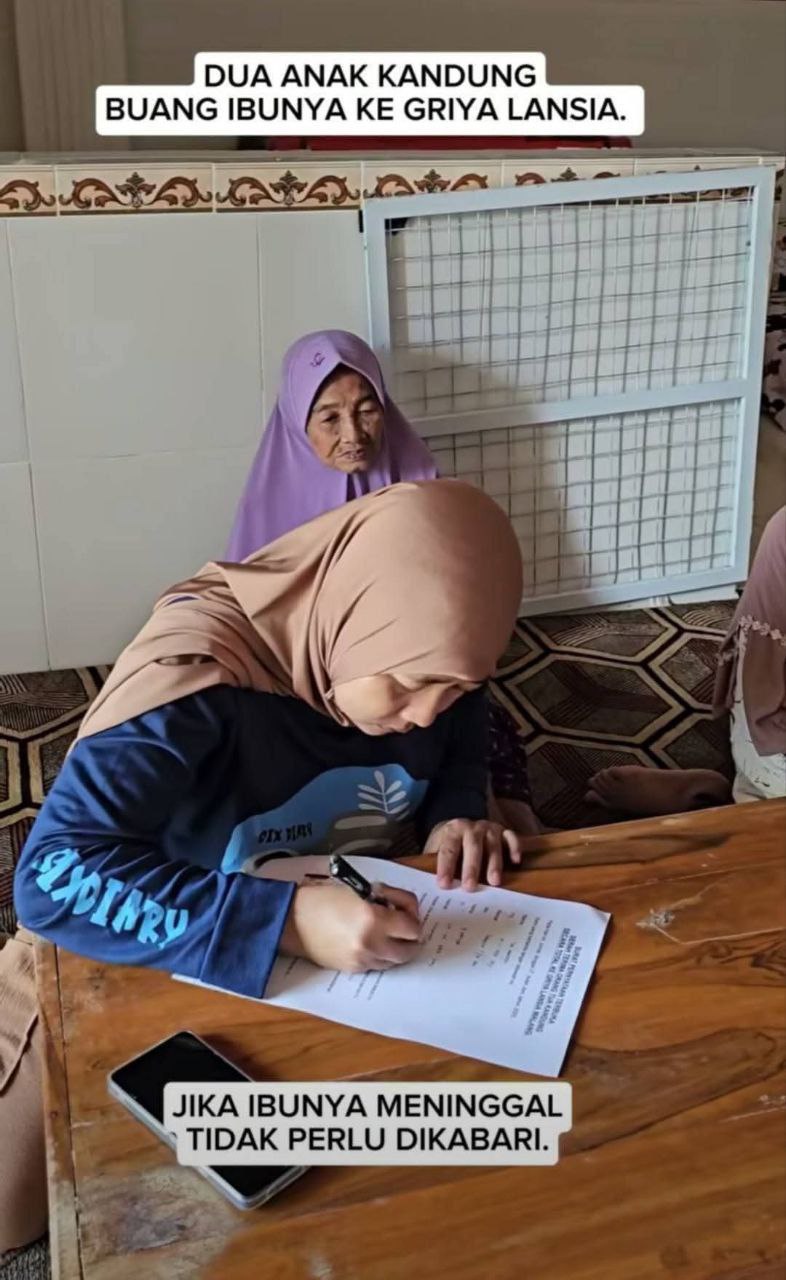
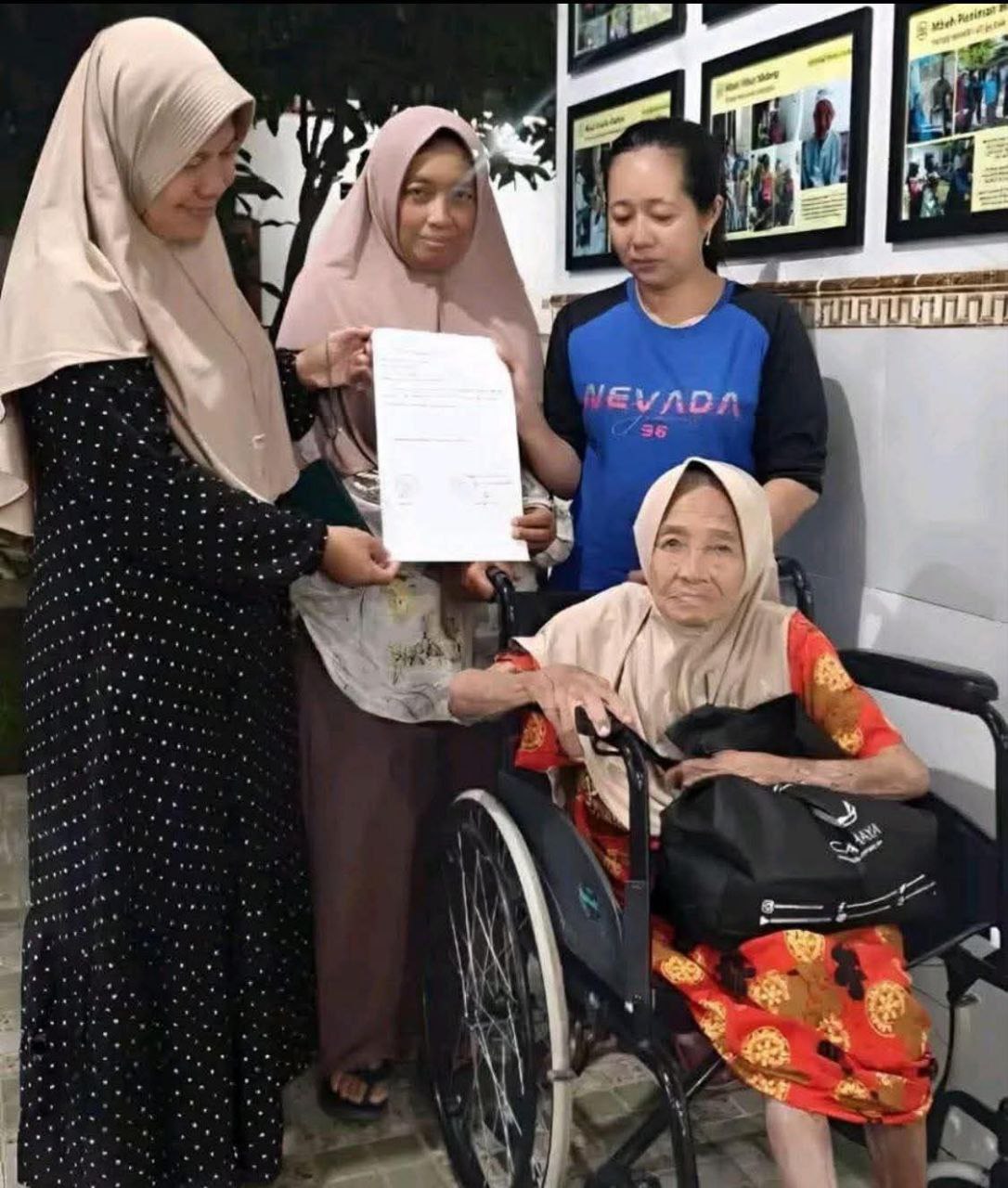
Social media was once again stirred by a heartbreaking story from Sidoarjo, East Java, involving two siblings identified as F and R. The duo drew public ire after a video of them placing their biological mother in a nursing home went viral. Even more shocking, the siblings signed a notarized statement refusing to be contacted by their mother — even in the event of her death.
Their actions sparked a fierce backlash. Many criticized F and R for neglecting their moral and familial responsibilities, accusing them of violating deep-rooted cultural values around filial piety and compassion. The outrage swept across social media platforms, turning their story into a national conversation.
But the pressure did not stop online. Local community members and extended family also weighed in, adding to the wave of condemnation. Feeling cornered and overwhelmed, F and R eventually decided to take their mother back from the nursing home. However, this move triggered another round of heated reactions from netizens.
Instead of being seen as a sign of regret or realization, the decision was interpreted as a reluctant act motivated solely by fear of public judgment. “They only took her back because of the backlash,” one commenter wrote. “If it hadn’t gone viral, the mother would still be in the home,” another added. Questions about sincerity and compassion quickly took center stage.
Further controversy erupted when a young girl—possibly one of the siblings’ daughters—appeared in the video without wearing a hijab. This minor detail drew a new wave of commentary, ranging from critiques of parenting to accusations of moral inconsistency, further complicating an already emotionally charged situation.
Meanwhile, the nursing home expressed no objections to the family’s decision. Staff stated that as long as the procedures were properly followed, they had no issue with the mother being taken back. They emphasized that the welfare of the elderly is always their top priority, and similar cases have occurred before.
This case has become a sobering reminder of how social media can shape public opinion and impose intense social pressure. In the flood of online comments and digital judgment, complex human issues are often reduced to simplistic binaries of right or wrong. The story of F and R is not just a matter of condemnation—it reflects how society demands moral accountability, sometimes at the expense of nuance, empathy, and dialogue.



